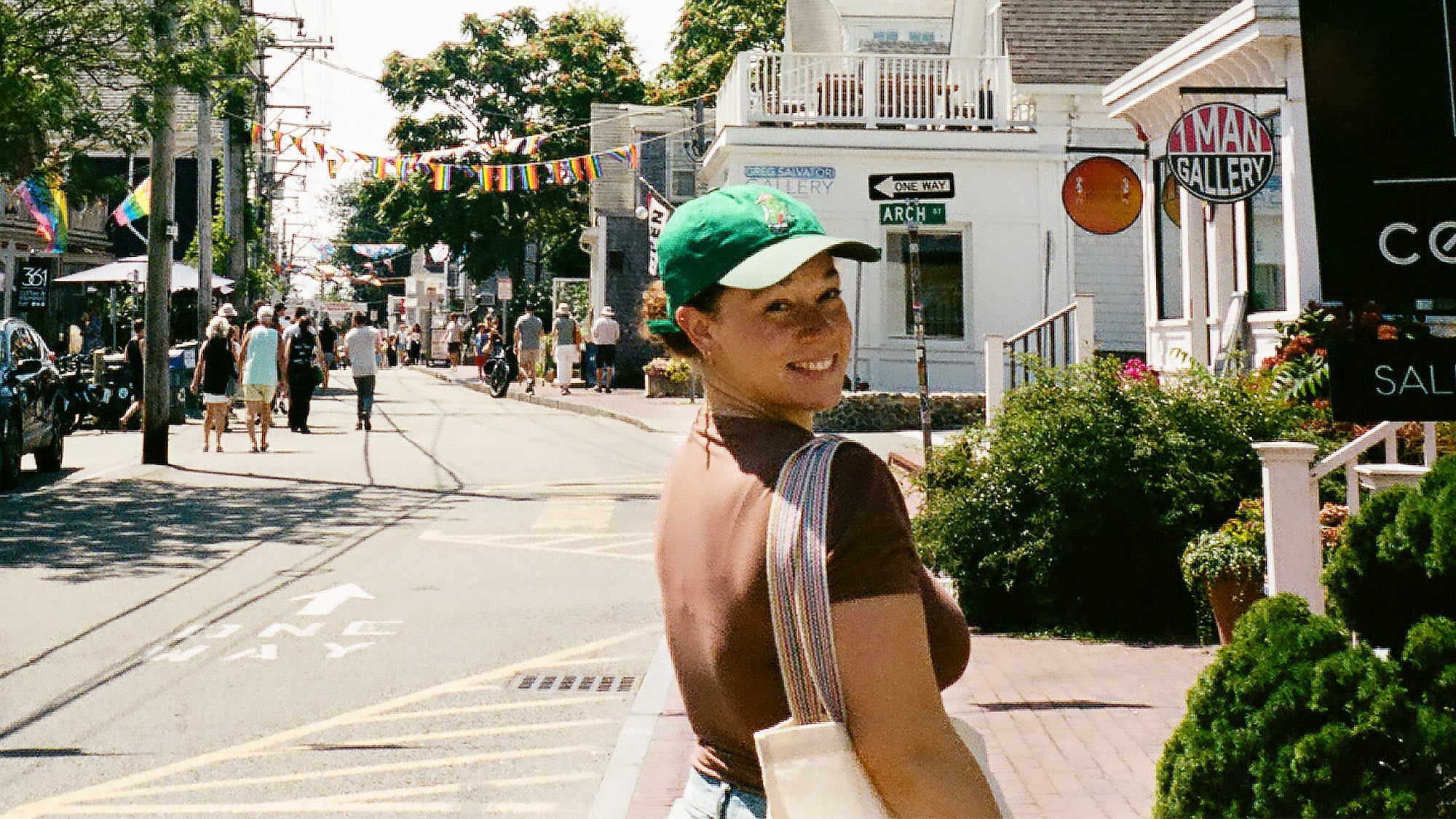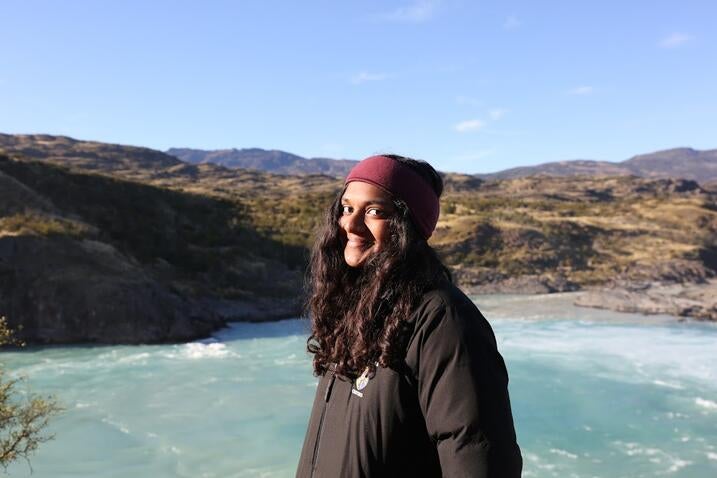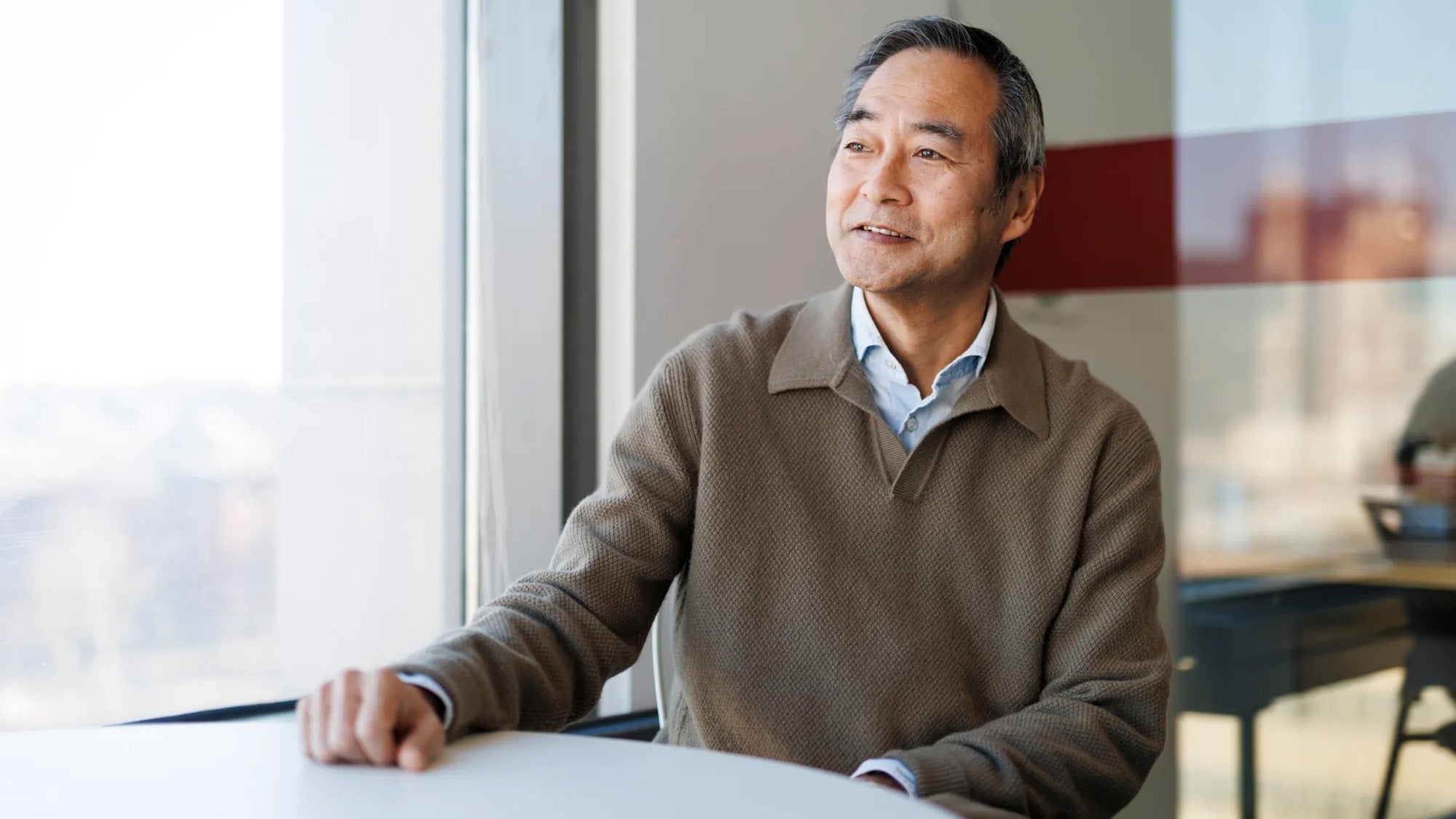The power of community in public health work

Ana Warner, MPH ’25, is passionate about working with communities to improve public health outcomes, particularly around reproductive and maternal health. She finished her MPH-65 coursework in the Department of Social and Behavioral Sciences at Harvard T.H. Chan School of Public Health in December and will be graduating in May. She recently spoke about her student practicum with the San Antonio Black Doula Collective, her new job as a program management specialist at Boston Medical Center, and the book she loves to recommend to her fellow twentysomethings.
Q: How did you get interested in public health?
A: I grew up in a suburb outside of Dallas, Texas. My parents and a lot of the adults in my close circle were really conscious of their health. They encouraged me and the other kids that I was around to be active, eat healthy. I think that was formative.
As an undergraduate at New York University, I started out studying psychology. I knew I didn’t want to be a clinician, but I was really interested in finding ways to empower people to support their health. I talked to my academic advisor, and she asked if I’d ever heard of public health. The first course I took opened my eyes and changed my life. I found it to be so fulfilling and interesting.
Q: What did you like about it?
A: I learned that the environment that you’re in and the resources that you have access to outside of the doctor’s office have a huge impact on your health. That’s something you might know intuitively, but it’s really different when it’s spelled out and you realize that there’s a whole world of academic study dedicated to helping people achieve their best health. I felt really empowered by that.
Q: Why did you decide to come to Harvard Chan School to get an MPH?
A: I had been considering getting a master’s degree, but I decided to get some real-world experience first and gain clarity on what I would need to be successful in public health. After working in the New York City Department of Health and Mental Hygiene for two years, I decided to go back to school to build up my technical skills.
When I visited Harvard Chan School, I met current students who told me about the practicum projects they were doing and some of the courses they’d taken. It really sealed the deal for me to hear about the opportunities that they had access to at Harvard. I wanted to be a part of that.
Q: What’s something that you learned here that you think will stick with you in your career?
A: Communication skills. I’ve been involved in projects with a lot of stakeholders who have different ideas and priorities. It can be a challenge to create something that everybody is happy with at the end of the day. It takes communicating effectively and working hard to make sure that everyone sees the value in what you’re doing and is on the same page.
Q: What is a non-course-related highlight of your time at the School?
A: It was really nice to have a community to bond with where we feel strongly about a lot of the same topics and can teach each other new things.
Q: Tell me about your practicum with the San Antonio Black Doula Collective (SABDC).
A: SABDC is a non-profit that supports Black families in the San Antonio area with the goal of helping lower high rates of maternal and infant mortality. It was meaningful to get a glimpse of what it might be like to do work I’m really excited and passionate about in my home state.
The focus of my practicum originally was to develop an evaluation plan for their doula training program, but we found that there were quite a few other areas where I could help them build up a foundation to achieve their long-term goals. This included working with collaborators on plans to support spaces where all families feel safe and comfortable giving birth.
It’s clear that the collective members care for their communities, and they’re deeply embedded in them. I think the biggest lessons that I came away with were how powerful it is to never back down from your purpose and to never lose that personal connection to the people you’re working with.
Q: What are you doing in your current job, and what are your career ambitions?
A: I’m currently a program management specialist with the general internal medicine department at Boston Medical Center. I help with data collection and analytics in their primary care department and work with the population health team on community health initiatives. I think the work that I’m doing now is helping me gain skills and perspectives that will be beneficial for my career.
Ultimately, I’m hoping to get back into the reproductive and maternal health space. My dream is to work with people who are also really passionate about this topic and want to make reproductive care accessible to everyone.
Q: What keeps you motivated to work in public health?
A: Even though I had really knowledgeable and supportive family members who showed me that I had the power to take care of my health growing up, my life changed so much for the better when I gained the confidence to ask questions about my health, access all of the health care that I had a right to, and to not be ashamed of any experiences that I was having. That’s what I want for everybody in the world, and that really motivates me to keep going.
Quick hits
Q: What’s your favorite way to unwind?
A: I love to take long walks around Boston and try new foods. If those things coincide, it’s like my perfect day.
Q: What’s something people might not know about you?
A: I am an avid baker. I am particularly good at making single-serve brownies.
Q: What’s a book or movie you like to recommend?
A: The Defining Decade: Why Your Twenties Matter—And How to Make the Most of Them Now is a really helpful book. My movie recommendation is Clue, based on the board game. I think it’s the best movie of all time.


